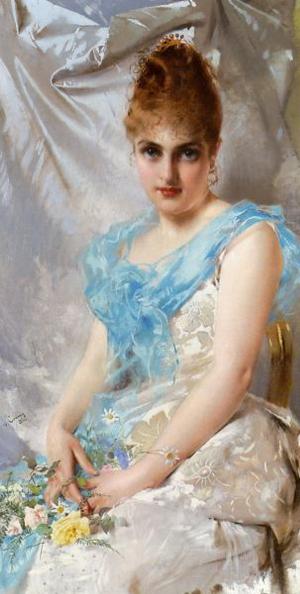Court Netherleigh: A Novel
Nonfiction, Religion & Spirituality, New Age, History, Fiction & Literature| Author: | Mrs. Henry Ellen Wood | ISBN: | 9781465625168 |
| Publisher: | Library of Alexandria | Publication: | March 8, 2015 |
| Imprint: | Language: | English |
| Author: | Mrs. Henry Ellen Wood |
| ISBN: | 9781465625168 |
| Publisher: | Library of Alexandria |
| Publication: | March 8, 2015 |
| Imprint: | |
| Language: | English |
In the midst of the Berkshire scenery, so fair and wealthy, this pleasant little place, Netherleigh, nestled in a sylvan hollow. It was only a small, unpretending hamlet at its best, and its rustic inhabitants were hard-working and simple. On a wide extent of country, surrounded on all sides as far as the eye could reach, with its forests, its hills and valleys, its sparkling streams, sat many a noble mansion of ancient or modern architecture, and of more or less note in the county. Farm homesteads might be seen, surrounded by their outbuildings, their barns and substantial hayricks. Labourers' cottages were dotted about; and the men themselves toiled at their several occupations. Flanking the village, and looking down upon it from its eminence, rose the stately walls of Court Netherleigh: an imposing and beautiful edifice, with which none of the other mansions in the distance could compare. It was built of red brick, curious but bright-looking, and its gables and angles were quaint and picturesque in a high degree. Winding upwards from the village, you came upon the entrance-gates on the left of the road--great gates of wrought iron, with two smaller gates beside them. The lodges stood one on each side the gates, roses and honeysuckles adorning the porches and lower windows. In one of these lodges, that on the left as you entered, lived the gatekeeper and his family; in the other the head gardener. Let us, in imagination, enter the gates. It is Monday morning, the first of October, and a lovely day--warm and sunny. The gatekeeper's wife, a child clinging to her apron, runs to the door at the sound of steps, lest, haply, the great gates should need to be thrown open. Seeing only a foot-passenger, she drops a curtsy. Winding onwards through the drive that surrounds the park, we see the house itself--Court Netherleigh; a wide, low, picturesque house: or perhaps it is only its size that makes it look low, for it is three stories high. At the back, hidden by clustering trees, are the stables and out-offices. Extensive gardens lie around, which show a profusion of luscious fruits and choice vegetables, of smooth, green lawns, miniature rocks, and lovely flowers. Fine old trees give shade to the park, and the deer may be seen under their spreading branches. Altogether, the place is noble, and evidently well-cared for. Whosoever reigns at Court Netherleigh does so with no sparing hand. We shall soon see her, for it is a lady. Ascending the three broad stone steps to the entrance-hall, rooms lie on either hand. These rooms are not inhabited this morning. We must make our way to the back of the hall, go down a passage on our right, and open a door at the end. A rather small room, its walls white and gold, its furniture a pale, subdued green, glass doors standing open to the outer air--this arrested the eye. It was called Miss Margery's room, and of all the rooms in Court Netherleigh it was the one that Miss Margery loved best. Miss Margery was seated in it this morning, near the table, sewing away at a child's garment, intended probably for one of the inmates at the lodge, or for some little waif in the hamlet. Miss Margery was not clever at fine work, she was wont to say, but at plain work few could equal her, and she was never idle. She was a little woman, short and small, with a fair complexion and plain features, possessing more than her share of good sense, and was very active and energetic, as little people often are. She always wore silk. Her gown this morning was of her favourite colour, violet, with a large lace collar fastened by a gold brooch, and black lace mittens under her lace-edged sleeves. She wore also a white clear-muslin apron with a braided border. The fashion of these aprons had come in when Miss Margery was a much younger woman, and she would not give them up.
In the midst of the Berkshire scenery, so fair and wealthy, this pleasant little place, Netherleigh, nestled in a sylvan hollow. It was only a small, unpretending hamlet at its best, and its rustic inhabitants were hard-working and simple. On a wide extent of country, surrounded on all sides as far as the eye could reach, with its forests, its hills and valleys, its sparkling streams, sat many a noble mansion of ancient or modern architecture, and of more or less note in the county. Farm homesteads might be seen, surrounded by their outbuildings, their barns and substantial hayricks. Labourers' cottages were dotted about; and the men themselves toiled at their several occupations. Flanking the village, and looking down upon it from its eminence, rose the stately walls of Court Netherleigh: an imposing and beautiful edifice, with which none of the other mansions in the distance could compare. It was built of red brick, curious but bright-looking, and its gables and angles were quaint and picturesque in a high degree. Winding upwards from the village, you came upon the entrance-gates on the left of the road--great gates of wrought iron, with two smaller gates beside them. The lodges stood one on each side the gates, roses and honeysuckles adorning the porches and lower windows. In one of these lodges, that on the left as you entered, lived the gatekeeper and his family; in the other the head gardener. Let us, in imagination, enter the gates. It is Monday morning, the first of October, and a lovely day--warm and sunny. The gatekeeper's wife, a child clinging to her apron, runs to the door at the sound of steps, lest, haply, the great gates should need to be thrown open. Seeing only a foot-passenger, she drops a curtsy. Winding onwards through the drive that surrounds the park, we see the house itself--Court Netherleigh; a wide, low, picturesque house: or perhaps it is only its size that makes it look low, for it is three stories high. At the back, hidden by clustering trees, are the stables and out-offices. Extensive gardens lie around, which show a profusion of luscious fruits and choice vegetables, of smooth, green lawns, miniature rocks, and lovely flowers. Fine old trees give shade to the park, and the deer may be seen under their spreading branches. Altogether, the place is noble, and evidently well-cared for. Whosoever reigns at Court Netherleigh does so with no sparing hand. We shall soon see her, for it is a lady. Ascending the three broad stone steps to the entrance-hall, rooms lie on either hand. These rooms are not inhabited this morning. We must make our way to the back of the hall, go down a passage on our right, and open a door at the end. A rather small room, its walls white and gold, its furniture a pale, subdued green, glass doors standing open to the outer air--this arrested the eye. It was called Miss Margery's room, and of all the rooms in Court Netherleigh it was the one that Miss Margery loved best. Miss Margery was seated in it this morning, near the table, sewing away at a child's garment, intended probably for one of the inmates at the lodge, or for some little waif in the hamlet. Miss Margery was not clever at fine work, she was wont to say, but at plain work few could equal her, and she was never idle. She was a little woman, short and small, with a fair complexion and plain features, possessing more than her share of good sense, and was very active and energetic, as little people often are. She always wore silk. Her gown this morning was of her favourite colour, violet, with a large lace collar fastened by a gold brooch, and black lace mittens under her lace-edged sleeves. She wore also a white clear-muslin apron with a braided border. The fashion of these aprons had come in when Miss Margery was a much younger woman, and she would not give them up.















